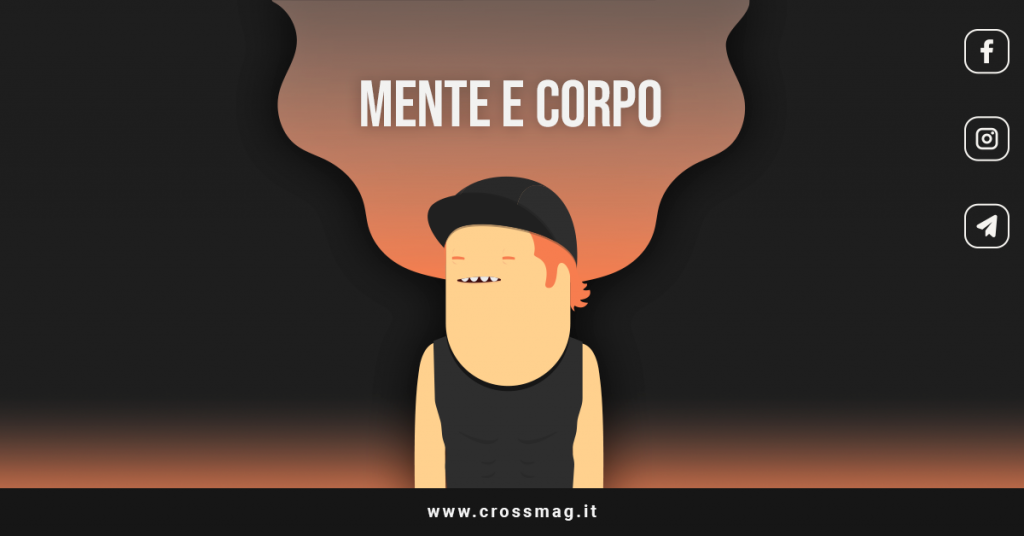When you train, do you think you are forging just your body or your whole person? Have you ever noticed what power your mind has during a circuit or training of any kind?
Everyone will have happened to perceive themselves subdued, to feel fatigue more, not to perform enough when there is something that disturbs us.
In fact, in the gym we not only bring our body to be sculpted, but our entirety. It is therefore inevitable to take care of the body but also of thesoul.
Index
THEIntero we are made of
We usually think, for cultural reasons, that soul and body are two entities distinct from each other; so we have been taught, from religion to medicine, which has increasingly fragmented the person, making him an organ to be treated, as if we were machines in need - every now and then - to modify or fix a piece.
In short, we have forgotten that the patient is, first of all, a person, with a history, emotions, relationships, etc.
In our daily life, on the other hand, sometimes we realize that we have a body only when it no longer obeys us, perhaps due to a trivial headache.
What influence does this call of the non-functioning body have on the quality of our day? It often compromises what we have to wait for, from work to training.
In short, we forget how much body and soul (or mind, spirit, depending on what we want to call it) are just sides of the same coin: theIntero of which we are made and who we are.
Train theIntero
Therefore, if we are a Whole, then we must watch over ourselves, trying to be aware of the aspects that, during a workout, can affect the result.
In ancient Greece, the care of the body passed through the care of the soul. There paideia - that is, the education of young men - involved training the body and mind.
No aspect of the student was left out, in order that he could sculpt himself and tend to the best version of himself; not only for individual purposes, but also for social ones, since many of the young people thus trained were destined for the government of poles Greek.
Then, not only did they train hard, forging their body, but also formed their mind through particular studies, including philosophical ones.
Philosophy, in fact, had the task of helping every young person to know himself, to be aware of his own inclinations, desires, possibilities and limits.
Know each other better and have awareness of who you are, it helps you to achieve results that are congruent with your vision of the world, allowing you to strive for that well-being that is certainly obtained through sport for example.
However, if not supported by everything that makes us complex individuals, it falters as soon as the body is not well or at what life puts in front of us.
We are living beings and, as such, we sometimes go through crises of various kinds, crisis existential, which can block us, make us feel stalled, unable to face the tests that existence imposes on us.
We know how difficult it is to keep practicing, to train when the inner turmoils accompany us to the gym.
Often the results do not arrive for reasons beyond the purely physical commitment or from metabolic stall, with frustration on the part of those who constantly engage in exercise or diet. We must ask ourselves what prevents us from succeeding in the enterprise of forging our body.
A coach ofIntero: the philosophical counselor
Here, there is one profession that takes care of the Whole of which we are made: the Philosophical Counseling.
The philosophical counselor helps people in existential difficulty to find the resources they have to face the problem and flourish again.
He is a sort of coach of the soul - though conceived in its constitutive union with the body - who accompanies people out of the "fog" in which they find themselves at that particular moment.
He is not a coach or a psychologist, he does not teach philosophy, but he helps you to "give birth" to yourself, that is to (re) find yourself, discover and understand yourself better, so that your existence is always more congruent than what you think and to your authentic existential project… to become yourself, in body and soul.
Dr. Annarita Dibenedetto
Graduated in philosophy, she soon discovers that her vocation was to actively listen to others and take care of people.
Enrolled in the Three-year Master of Philosophical Counseling and since 2014 she has been active as a freelancer, tutor and teacher at the ISFiPP
Find out more about the philosophical counselor on the site Bene philosophy, by Doctor Annarita Dibenedetto.

